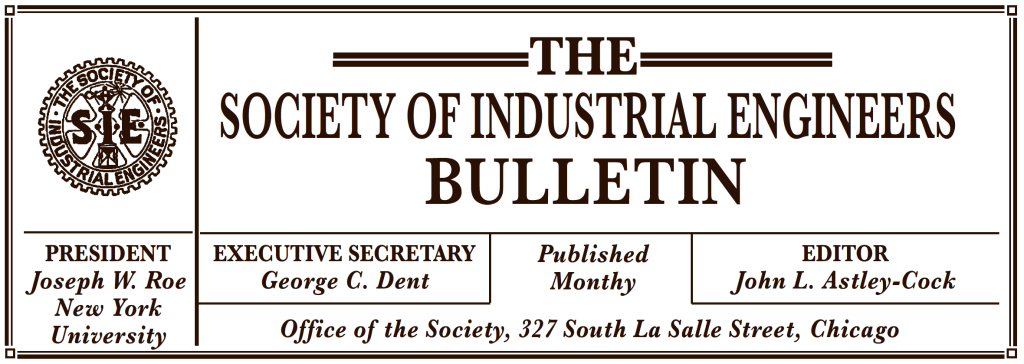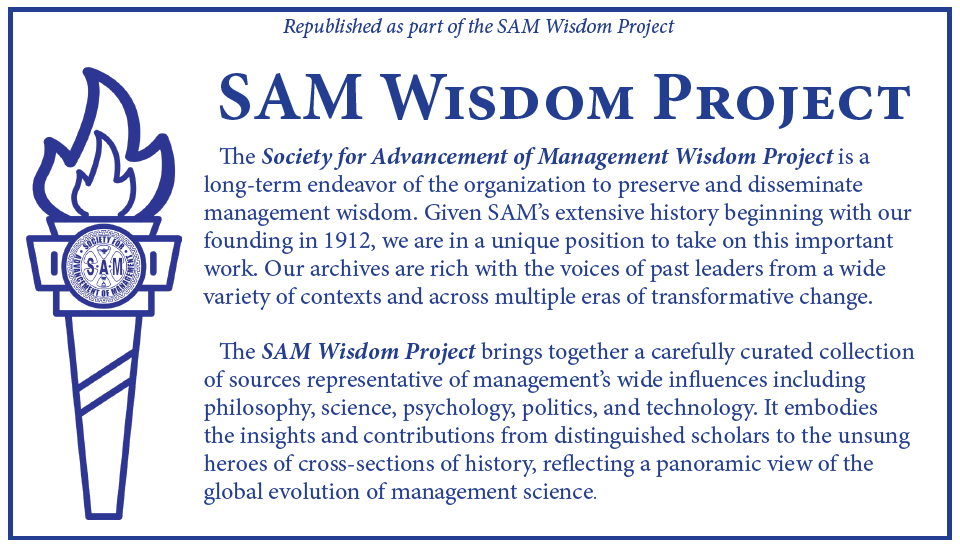
Harry A. Piper
Wilmington, Delaware
The office manager’s job is an important one. It takes a well rounded-out experience to fill it successfully. His value to his company is largely dependent upon himself. He can make of his job what he will. When Vanderlip was injected into the job as an official of a big New York bank, he was ushered into an office containing a chair, an empty desk and a telephone, and told, “There is your job, fill it.” He not only filled it, he made it; and so with the job of office manager. It is a job that is difficult to definitely describe. Its functions are largely dependent upon existing conditions in the organization of which it is a part.
The opportunities for creative and constructive work and the introduction of economies are relatively almost unlimited in the average office. It is but comparatively recent that a concerted or organized effort has been made to apply the principles of scientific management and efficiency to the administrative or office end of business. When consideration is given to the fact that the usual economy resulting from a scientific office survey ranges from 10 to 25 per cent and that there are about 2,000,000 office workers in the United States, the tremendous savings that are possible can then be visualized.
What must be emphasized is the real significance of a dollar which is actually saved. When a dollar is once saved, it means that dollar is saved not only this year but each succeeding year. A saving of an office boy’s salary, or $500 per year or the equivalent in supplies, equipment or other office expense means the release of $10,000 capital for diversion towards expansion or for other purposes each succeeding year. An accumulation of such savings is, therefore, an important consideration, with any concern.
Every office organization of considerable size should have a staff specialist engaged on office improvement work. He should function directly under the office manager. The office manager should have all clerical workers in the organization directly under his control and his place in the organization should be an executive one and comparable with other of the higher executives. In the smaller office organizations, the office manager or chief clerk should promote the improvement work as part of his regular duties. He may use committees, meetings, a suggestion plan or other means as an aid in the promotion of the work.
The office cannot be brought to the highest state of efficiency unless the importance of the office and its rating in the general organization scheme is fully appreciated and properly recognized.

